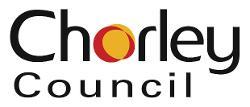Lotteries
Lotteries are a form of gambling and so those wishing to run them must ensure that children and other vulnerable people are not exploited by their lottery. Generally, the minimum age for participation in a lottery is 16 years of age, except for certain exempt lotteries such as incidental non-commercial lotteries, private, work and residents' lotteries.
A lottery is defined as an arrangement where people pay to participate for the chance of winning a prize and is either simple or complex.
A simple lottery is where:
- persons are required to pay to participate
- 1 or more prizes are allocated to the participants
- prizes are allocated wholly by chance.
A complex lottery is where:
- persons are required to pay to participate
- 1 or more prizes are allocated to the participants
- the prizes are allocated by a series of processes
- the first of these processes relies wholly on chance.
The Gambling Commission has issued a code of practice for lotteries.
Types of lottery
In general, lotteries may only be run in support of good causes, such as charity fundraising and cannot be run for private or commercial gain.
Large Society Lotteries
(proceeds exceeding £20,000 per lottery or £250,000 in a calendar year) - the organisation running them must obtain an operating licence from the Gambling Commission. We have no involvement in licensing these types of lotteries.
Small Society Lotteries
(proceeds less than £20,000 per lottery or £250,000 in a calendar year) - the organisation running them must be registered with us. There is no need for a Gambling Commission operating licence.
Small society lottery guidance.
Application for a small society lottery (PDF) [138KB]
Lottery returns form (PDF) [63KB]
You can return the forms to us by email to contact@chorley.gov.uk. Alternatively you can post to: Licensing Team, Civic Offices, Union Street, Chorley, PR7 1AL.
Exempt Lotteries
These are not required to be run under an operating licence or registration, but may not be run for private gain and must be run in accordance with the law:
- incidental non-commercial lotteries - held at non-commercial events, where all money raised at the event goes entirely to purposes that are not for private or commercial gain
- private society, work or residents' lotteries - where tickets can only be sold to society members, workers in or residents of a premises
- customer lotteries - run by occupiers of business premises selling tickets only to customers on the premises itself.
Please note that in the case of work, residents' or customer lotteries, no profit may be made for any purpose, including worthy causes. If you are not sure whether your lottery falls into one of these categories, please read the relevant document, issued by the Gambling Commission.
Free draws and prize competitions
Free draws and prize competitions are free from statutory control under the Gambling Act 2005.
Generally, prize competitions are those in which success depends on the exercise of skill, judgement or knowledge by the participants and does not rely on chance, although some prediction schemes where success can be influenced by the use of skill or judgement may amount to betting. A free draw is one where there is no cost of entry for the participant.
Fees for small society lottery registrations
Annual fees are due within the 2 months prior to the anniversary of the registration. The fee is £20 and this amount is set by central government; we have no discretion to reduce or waive this fee.
National lottery
We have no involvement in the regulation of the National Lottery, which is overseen by the government's Department for Culture, Media and Sport through the National Lottery Commission.




